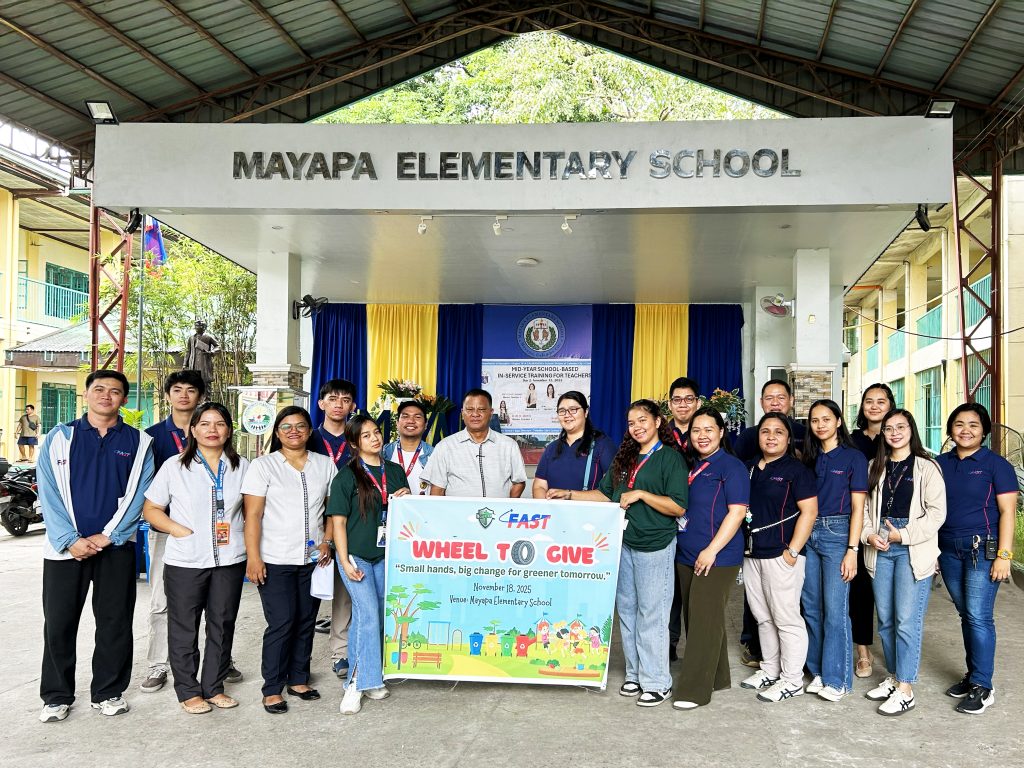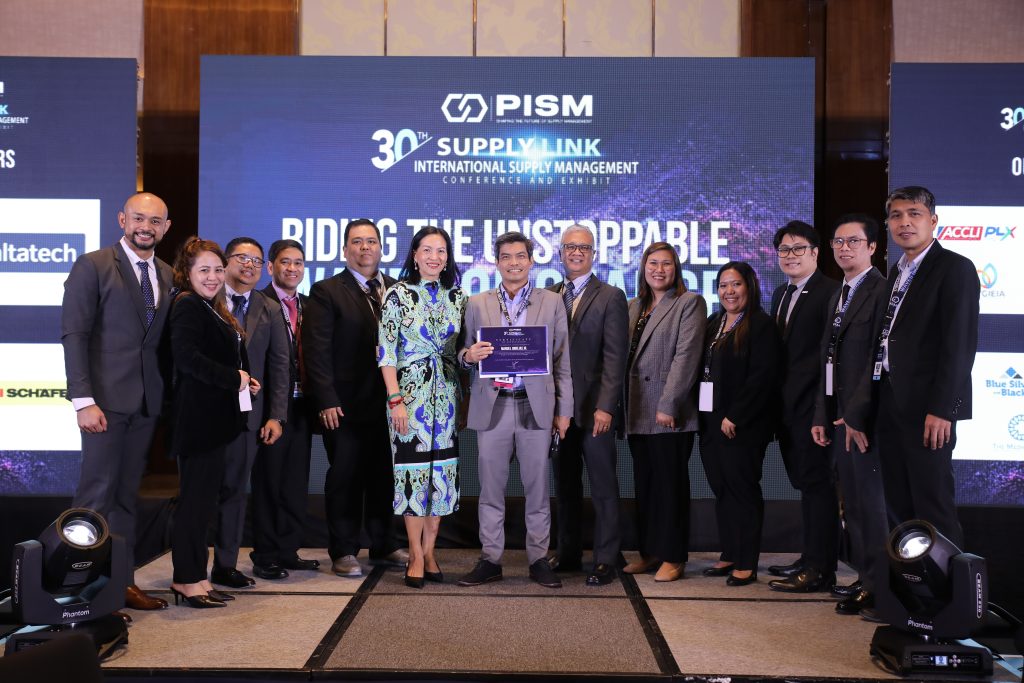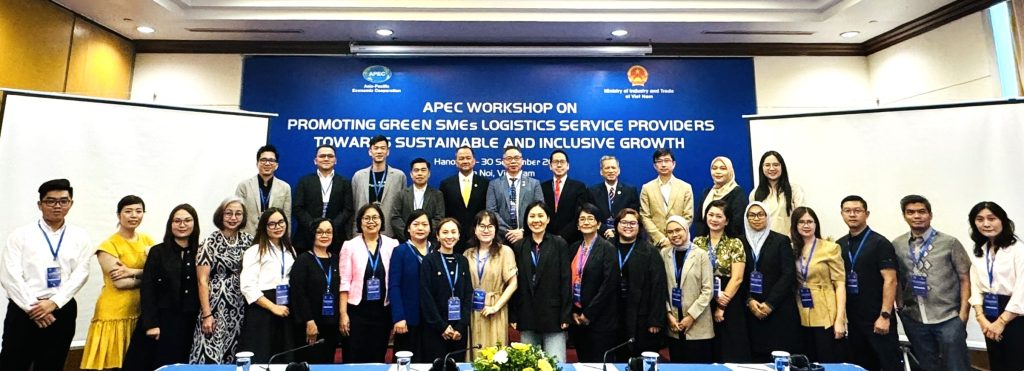
FAST Logistics Group, the Philippines’ largest end-to-end logistics provider, showcased its pioneering green logistics initiatives as it represented the country at the two-day APEC Workshop on Promoting Green SMEs Logistics Service Providers Towards Sustainable and Inclusive Growth.
Held on 29–30 September at the Fortuna Hotel in Hanoi, the workshop brought together APEC member economies — including Viet Nam, China, Indonesia, Malaysia, Chinese Taipei, and the Philippines — to exchange experiences, present case studies, and share strategies on how logistics SMEs can adopt greener practices while remaining competitive in the global supply chain.
Representing the Philippines in Session 3: Opportunities, Challenges, and Approaches in Greening the Logistics Sector, FAST’s CEO for Logistics Manuel L. Onrejas Jr. outlined both the challenges and opportunities of transitioning to sustainable supply chains in an archipelagic economy. Manny was accompanied by FAST VP for Strategy Gladys S. Ceniza during the workshop.
He also highlighted FAST’s industry-first projects such as the deployment of electric vehicles, the installation of solar-powered charging stations, the adoption of renewable-powered warehouses, and the establishment of community-based logistics kiosks.
“While some companies remain stuck in the status quo, we at FAST chose a different path — one driven by innovation and continuous improvement,” Manny said. “After all, we are in the business of finding solutions to problems.”
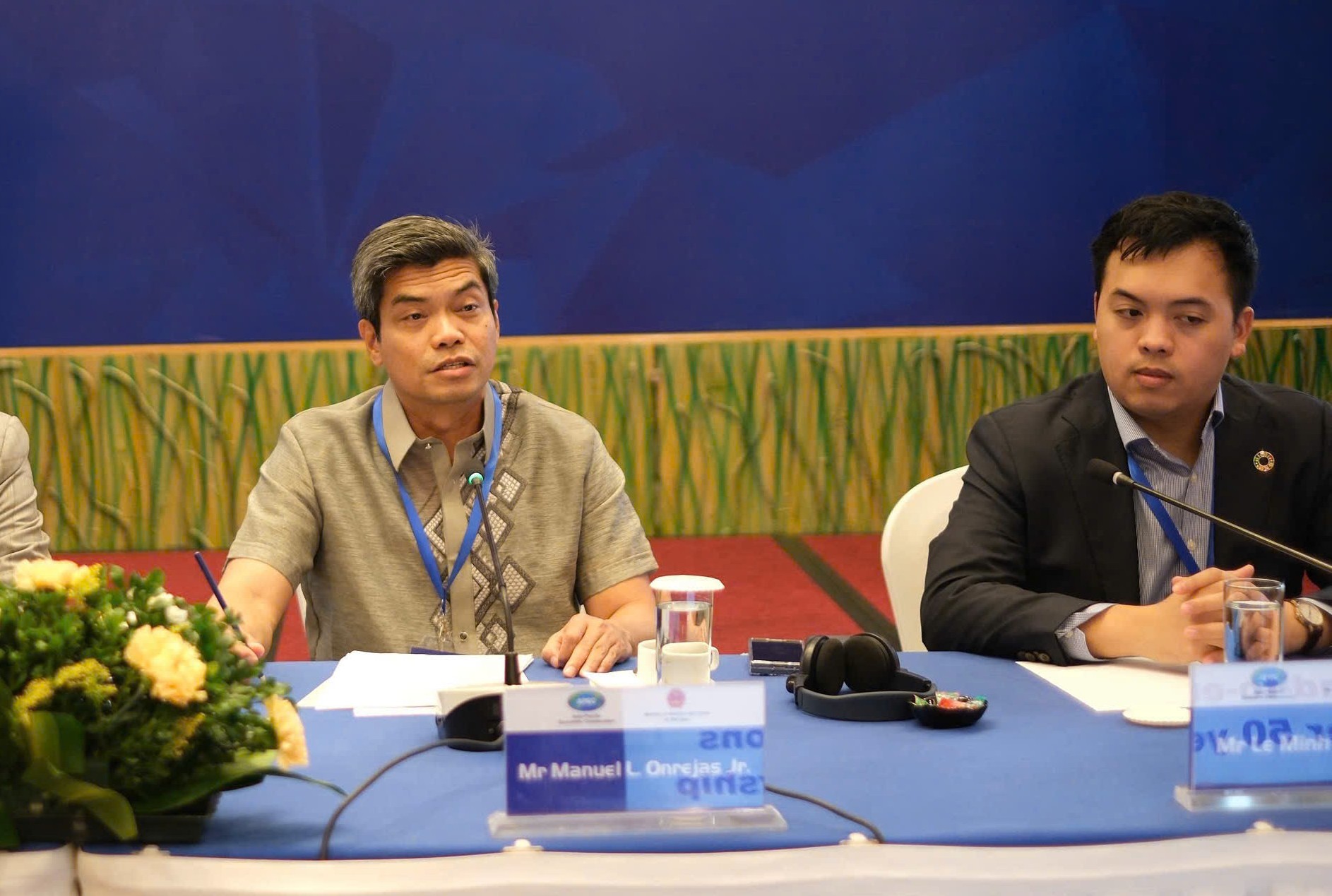
FAST as the Philippine Voice at APEC
With more than 50 years of industry leadership, FAST operates the Philippines’ largest warehouse footprint and trucking fleet, supporting multinational companies, leading conglomerates, and micro-enterprises nationwide. Its participation in the APEC workshop reinforced its role as a national industry leader and an advocate for a sustainable supply chain.
During the session, Manny underscored that FAST has voluntarily taken the lead in introducing sustainable logistics solutions and has committed to achieving Net Zero by 2050 ahead of stricter environmental mandates.
Among its key initiatives are the country’s inaugural fully electric trucks for transport logistics, the deployment of solar-powered charging stations, AI-powered truckload planning and route optimization, and the use of renewable energy in three major warehouses. These solar-powered facilities alone have helped avoid 1.65 million kilograms of CO₂ emissions between 2023 and 2025 — enough to power nearly 1,900 Filipino households for a year.
FAST recently launched its ESG strategy anchored on four priorities, namely, promoting customer welfare and satisfaction, creating a safe and empowered workplace, transitioning to a low-carbon economy, and ensuring strong government and risk management.
Manny explained that FAST adopted these measures not only to prepare for future regulations but also to demonstrate that sustainability and innovation can go hand in hand with business growth.
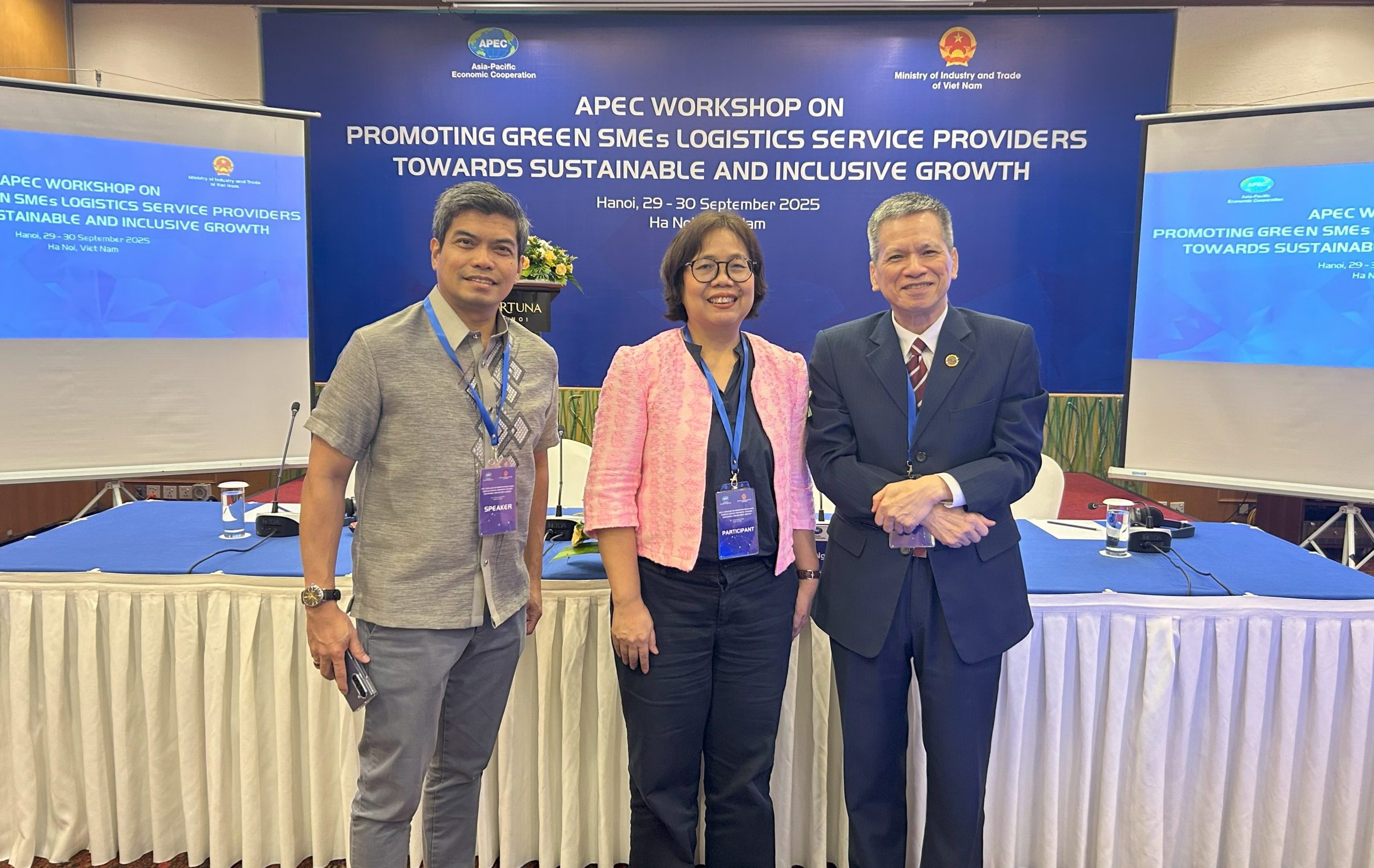
Bringing Sustainable Logistics to Small Businesses
Community-based logistics kiosks further support SMEs. Through these kiosks, FAST consolidates SME shipments and transports them as backloads, thereby reducing “empty miles,” optimizing truck utilization, and cutting emissions. These kiosks also make logistics more inclusive, ensuring that even smaller businesses in rural and provincial areas can access reliable and cost-efficient solutions.
By leveraging FAST’s nationwide scale, advanced systems, and industry expertise, SMEs can now enjoy the same level of efficient and greener logistics services that were once reserved for FMCG leaders and enterprise players.
This initiative forms part of FAST’s broader expansion into MSME logistics, enabling micro, small, and medium enterprises to actively participate in sustainable supply chains and compete more effectively in the market.
Confronting the Challenges of an Archipelagic Economy
He also underscored the unique challenges of greening logistics in the Philippines. With more than 7,000 islands, the country requires multimodal transport — including inland trucking, interisland shipping, sea freight, and air freight — which significantly raises costs.
Citing government data, he said logistics expenses account for nearly 27.5% of sales, compared to single-digit figures in more advanced economies. Structural challenges such as port congestion, high electricity prices, underinvestment in provincial hubs, and the country’s vulnerability to typhoons and natural disasters further complicate the transition.
“These realities make our baseline cost of doing business — and decarbonizing — much higher than average,” Manny said. “But they also highlight why greening logistics in the Philippines is essential for resilience.”
Building Partnerships for a Greener Future
FAST’s leadership has also drawn partnerships with some of the world’s largest companies. Kenvue partnered with FAST to establish a mega distribution center powered entirely by renewable energy, one of the few in the region. Ajinomoto Philippines Corporation collaborated with FAST to deploy the electric vehicles and charging stations.
“These partnerships show that collaboration is a key driver in greening logistics,” Manny noted. “The trust placed in us by major multinational companies and leading conglomerates enables us to accelerate innovation and scale solutions more quickly.”
He acknowledged, however, that many SMEs and smaller logistics players face significant barriers to green adoption, particularly high upfront costs and limited customer demand. This, he stressed, makes collaboration and business-led innovation even more crucial in driving change.
Other distinguished speakers in the session included Professor Nung Nguyen of RMIT University Viet Nam and Mr. Le Minh Nguyen of UN Economic and Social Commission for Asia and the Pacific, who provided academic and regional perspectives on the role of sustainability in logistics transformation.
FAST reaffirmed the Philippines’ commitment to advancing the region’s green logistics agenda through its participation in the APEC workshop, while underscoring its role as the nation’s leading advocate for sustainable supply chain.
Connect with our Solutions Expert or visit https://linktr.ee/fastlogisticsph to learn more.
Categories
-
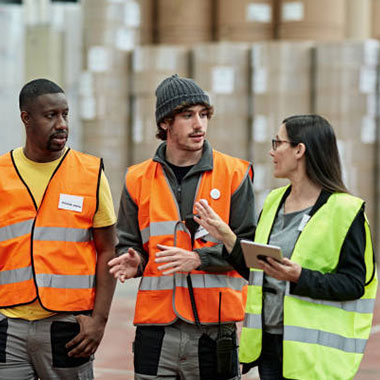
FAST Ahead
Includes case studies and testimonials of our partners as well as other featurettes from industry experts
-

FAST Hacks
We simplify logistics terms and provide practical tips and solutions for the DIY in you
-
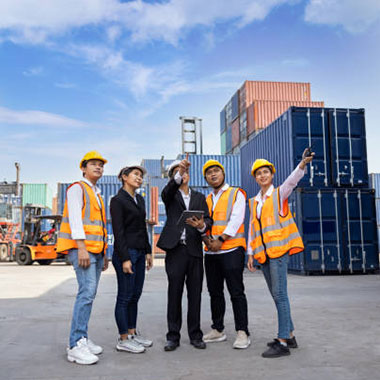
FAST Highlights
Know more about our history, various brands, achievements, and news updates
-
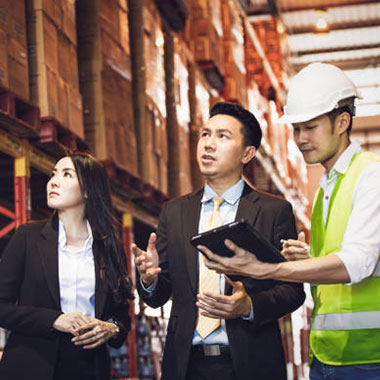
FAST Moments
Get to know the people of FAST, our employee programs, as well as our various ways of giving back to the community
-
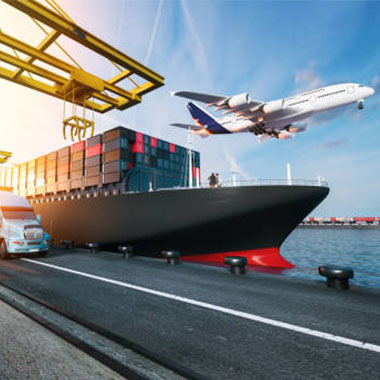
FAST Solutions
Learn more about the various logistics solutions that we cater to and offer our clients, as well as tech innovations, and service facilities
